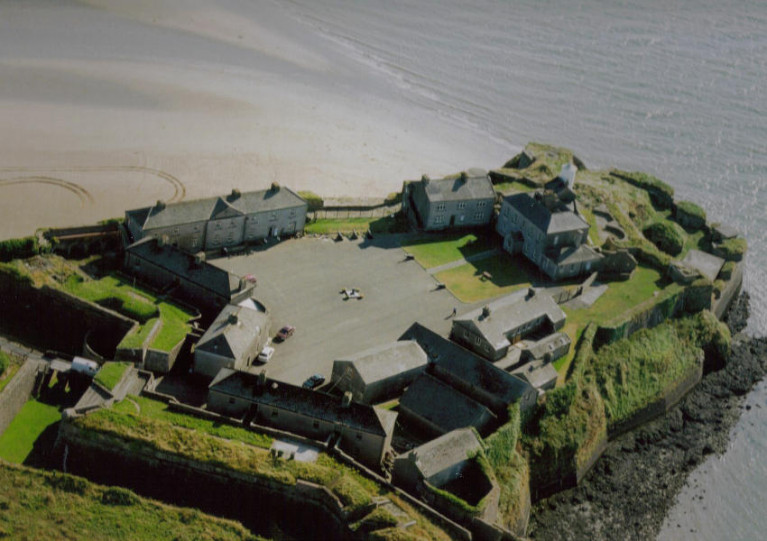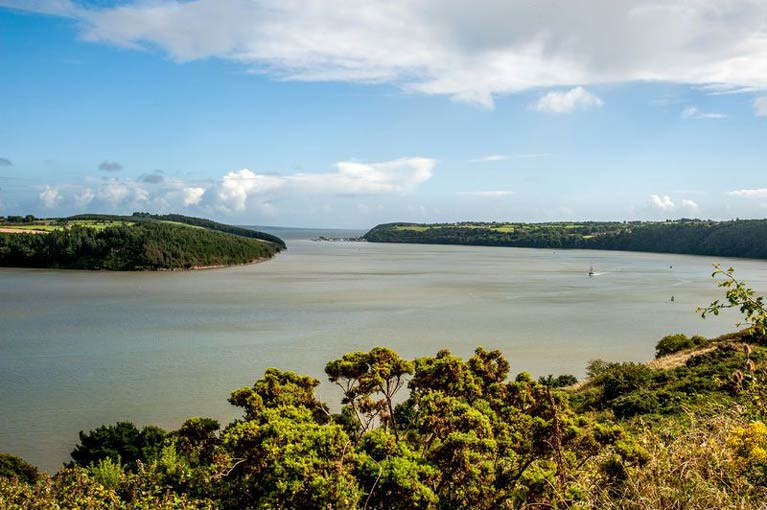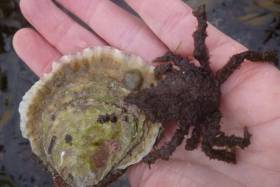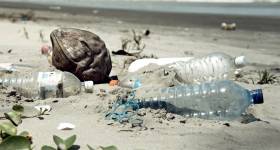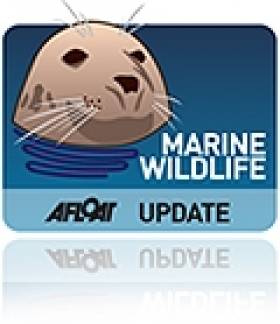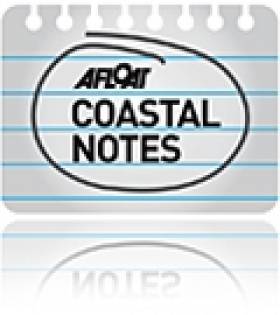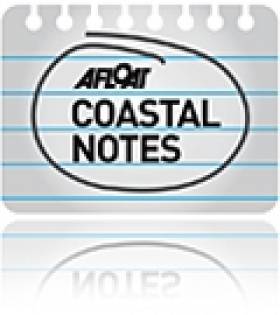Displaying items by tag: Coastwatch
Ireland’s Heritage Minister recently got a first-hand look at the dedication of volunteers in Co Wexford involved in this year’s Coastwatch Ireland coastal survey, which concluded earlier this month.
Today, Sunday 25 October, is the last day to submit data for this year’s autumn survey.
As the Gorey Guardian reports, Malcolm Noonan TD was at Duncannon Fort to learn about the importance of the Waterford Estuary — as well as management and fisheries plans for the area.
These would involve local fishermen returning to “heritage fishing gear and methods” in efforts to sustainably manage a key resource in Ireland’s South East.
The estuary has been a key issue for Coastwatch Ireland, which earlier this year welcomed a High Court decision to ban dredging for razor shells without a proper environmental assessment.
The Gorey Guardian has much more on the story HERE.
Coastwatch Welcomes Judgment on Waterford Estuary Protection
Coastwatch has welcomed a High Court decision closing the Waterford estuary to razor shell dredging without proper environmental assessment.
The ruling has implications for fishing activity on marine sites which are designated as Natura 2000 locations, Coastwatch director Karin Dubksy has said.
The High Court ruling issued last week quashes permission to dredge for razor shells in the Waterford estuary.
The ruling says that the decision to permit the activity was made without screening or appropriate assessment under Article 6(3) of the EU Habitats Directive to check if there is no adverse impact on the integrity of the site.
Last September, Coastwatch secured a temporary injunction preventing fishing for razor clams in the Waterford estuary, pending the outcome of a legal challenge.
It took proceedings against the Sea Fisheries Protection Agency (SFPA), the Minister for Agriculture, Food and the Marine, Ireland and the Attorney General.
Ms Dubsky said that the final ruling delivered on July 13th involves an undertaking that the Minister will agree to review the Sea Fisheries Regulations statutory instrument 290/2013 by November 30th this year.
This would ensure that Irish law “fully transposes the requirements of EU environmental law and, in particular, the EU Habitats Directive”, she said.
“Coastwatch will be entitled to make submissions to this review,” she said, and the State is responsible for the non-governmental organisation’s costs in the legal case.
“There has been too much optimism that the sea will cope with almost every private or corporate use anyone comes up with. The sea can’t and we need to protect it,” Ms Dubsky said.
“On top of that, climate change is already impacting on estuarine and coastal ecosystems. A hot spell can cause local mass death of organisms. There aren’t enough marine protected areas (MPAs) as connected safe havens to support species survival and those we have aren’t managed properly,” she said.
“The new Programme for Government sets out some positive plans, and with COVID payments and changes in markets, there is a real opportunity now to restructure and focus on ocean health,” she said.
“ We should support creation of marine protected areas, restoration and management plans and traditional low impact fisheries with locally designed closed areas,” she said.
The Department of Agriculture, Food and Marine said it was pleased that the case had been brought to a “satisfactory conclusion by means of an agreed settlement”.
It said that “while a commitment to review the Sea Fisheries Regulations SI 290 of 2013 does not form part of the settlement submitted to the High Court, the department has committed to undertake a review of SI 290 of 2013 by November 30th this year”.
Coastwatch is appealing for volunteers over the Spring tide period to participate in its annual coastal survey which has been extended to October 21st writes Lorna Siggins
Recent stormy weather and heavy rain have curtailed this year’s effort, and Coastwatch coordinator Karin Dubsky said volunteers would be very welcome over the next week.
The island-wide Coastwatch shore survey is in its 32nd year, having been initiated by Ms Dubsky and former Irish Times environment editor Frank McDonald.
A cross-county border training and survey event takes place this Sunday on the Galway-Clare coast when 40-minute training will be followed by group surveying of three or more sites at the causeway to Aughinish island.
Soup is promised after the event from 11.30 am to 1 pm, and it will be led by Ms Dubsky, Dr Cillian Roden and Sabine Springer.
Ms Dubsky said it was hoped to identify traditional seaweed harvesting site, seagrass and small maerl beds, and unique marine limestone sculptures made by the sea.
She has recently described the decline of seagrass as “especially worrying”, especially in Dublin Bay, as it constitutes “the most important carbon sink in our marine areas”.
Participants in the Galway event on Sunday should bring boots and wind/shower proof clothes and a pen or biro and a camera and should register with regional co-ordinator Sabine Springer on tel 086 819 53 24 or mail [email protected].
New seagrass beds are among the heartening finds announced at the launch of results from the most recent Coastwatch Survey, as Coast Monkey reports.
But the launch event in Dublin last Friday (5 April) also heard that hard erosion controls, unlicensed aquaculture and marine litter were having a deleterious effect on Ireland’s ocean wealth.
As the 2018 Coastwatch Survey drew to a close in October, it was reported that non-flushable wet wipes were “in abundance” around the Irish coastline.
Speaking on Friday, Coastwatch co-ordinator Karin Dubsky also observed that “no big flat fish nurseries have been reported for years now”.
On a positive note, however, it was recognised that participation on the annual Coastwatch survey is growing among volunteers from the general public as well as fishermen and anglers.
Last year marked the 31st Coastwatch citizen science survey of Ireland’s shores. Coast Monkey has more on the story HERE.
Wet Wipes Scourge of Irish Beaches In 2018 Coastwatch Survey
#CoastalNotes - Wet wipes are “in abundance” around the Irish coastline as the annual Coastwatch Survey draws to a close this week.
According to RTÉ News, citizen science volunteers taking part in the ‘eco-audit’ of Ireland’s coasts — which has been extended to this Sunday 21 October -- have found “long ropes” of the non-degradable wipes scattered on beaches and around rocks.
“We need an awareness campaign so that people understand why wipes are a problem and that they should not be flushing them away,” said Karin Dubsky of Coastwatch.
RTÉ News has more on the story HERE.
Plastic & Nitrates Concerns For Irish Shores In Latest Coastwatch Survey
#CoastalNotes - Plastic continues to litter Ireland’s coastline, with over 8,800 drinks bottles recorded around the island’s shores in the 2017 Coastwatch survey.
Preliminary results from the volunteer survey conducted in September and October show that more than four-fifths of shoreline sites had plastic bottles, according to RTÉ News.
While the rate of 3.6 per 100m of shore indicates a downward trend, it is still far higher than those in Scandinavia.
And it comes with a rising rate of bottle tops, especially “complex caps” that come with sports drinks, as The Irish Times reports.
In other summary results ahead of the final report due in the sprint, plastic bags were found at 40% of sites, though their numbers have fallen from a peak of 18 per site before the bag tax to an average of two this year.
While nearly half of locations surveyed were rated as “reliably free” of pollution by sewage, there are concerns over “worrying” nitrate levels in freshwater streams entering the sea.
That’s particularly so on the South and East Coasts, and in Northern Ireland where 13% of sites had levels exceeding EU directives.
The Irish Times has much more on the story HERE.
One Week To Go In Coastwatch Survey 2015
#Coastwatch - There's still a week left for Coastwatch volunteers to participate in the annual Coastwatch Survey for 2015, which this year has a special focus on the new Dublin Bay Biosphere.
Since 15 September volunteers have taken on one or more 'survey units' – 500m of shore – to do an 'eco-audit' of Ireland's shoreline at low tide. Details are available HERE.
It's hoped that the survey will break the 1,000-unit barrier by the last day next Thursday 15 October – while also encouraging the public to experience the particularly low spring tides at this time of year, revealing much more of our vibrant marine biodiversity.
Such discoveries could even be record-breaking, like the massive honeycomb reef found by Coastwatch volunteers in the Waterford Estuary this past summer.
#Biodiversity - Coastwatch volunteers taking part in events for National Biodiversity Week have discovered a massive honeycomb reef as much as a kilometre long in the Waterford Estuary.
Members of the public began checking the shore between Hook Head in Co Wexford and Annestown in Co Waterford on Monday 18 May, an area that has previously shown signs of honeycomb reefs.
But volunteers were astounded to make this latest massive discovery, and Coastwatch members are working to ascertain if it might be the biggest reef of its kind in the world, a record currently held by Saint-Malo in Brittany.
Karen Dubsky of Coastwatch Europe said "first results look very encouraging. We are looking for more surveyors to give an hour and search their shore."
Events continue till Monday 1 June for Ireland's National Biodiversity Week 2015, with today (Friday 22 May) being International Day for Biological Diversity.
Upcoming flagship events include a marine wildlife-watching trip to Lambay Island next Wednesday 27 May, but the event calendar lists a whole host of activities both around the coast and inland throughout the country.
Shoreline Litter Rises In Latest Coastwatch Survey Results
#CoastwatchSurvey - Last year's hot summer resulted in an increase of discarded drinks bottles around Ireland's coastline, according to the results of the latest Coastwatch survey.
The Irish Times reports on the findings of the Autumn 2013 coastal count, which concluded in mid-October - and the outcome shows some correlation between the unusually warm and sunny summer months that brought people to the seaside in droves, and an increase in both plastic and glass bottles littered on the shoreline.
The survey results also confirmed the rise in the numbers of jellyfish in Ireland's warming waters, as previously reported on Afloat.ie.
The Irish Times has more on the story HERE.
Extend Plastic Bag Levy to Sanitary Waste Says Coastwatch
#COASTAL NOTES - Coastwatch Ireland has urged for the plastic bag levy to be applied to sanitary products, balloons, lighters and other disposables that can be harmful to Ireland's marine wildlife.
The Irish Times reports on the call from the environmental network's Irish director Karin Dubsky at yesterday's launch of the findings from the recent 25th anniversary survey of Ireland's coastline.
As reported on Afloat.ie in October, the month-long volunteer survey took in use of land and shore, water quality, pollution levels and marine wildlife and plantlife.
More than 18,000 drinks containers - mostly plastic bottles - were found by volunteers on the 3% of Irish coastline sampled for the survey.
And despite a 50% fall over 14 years, sanitary waste such as condoms and dirty nappies were still a problem on beaches.
While suggesting a broadening of the plastic bag levy, Dubsky also called for a 'deposit on return' scheme for drinks containers to reduce letter and encourage recycling.
The survey also reported more positive news, with nitrate levels in outflow waters below detection in half the surveyed areas for the first time since 1993.
The Irish Times has more on the story HERE.


























